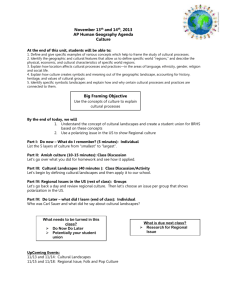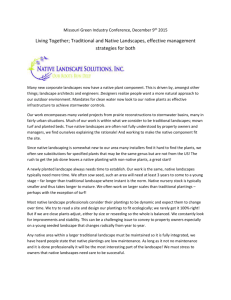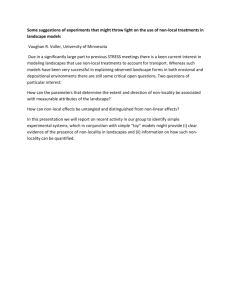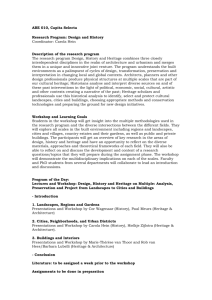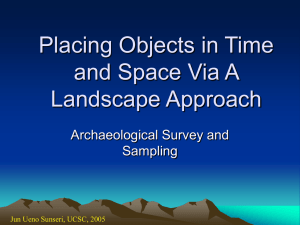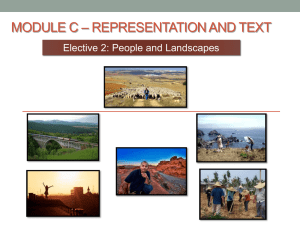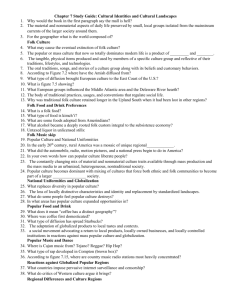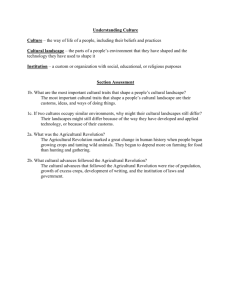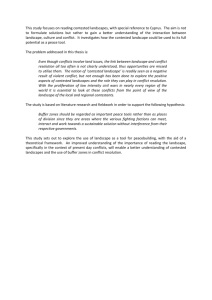GCHD Program TRANSFORMING LANDSCAPES Exploring the
advertisement
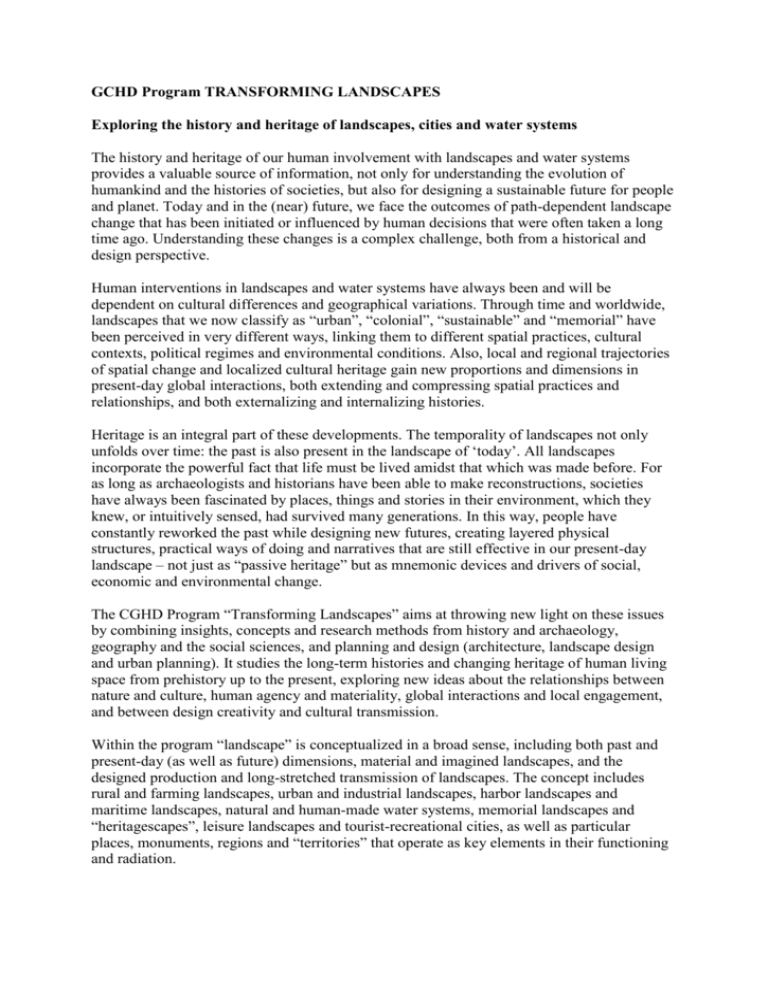
GCHD Program TRANSFORMING LANDSCAPES Exploring the history and heritage of landscapes, cities and water systems The history and heritage of our human involvement with landscapes and water systems provides a valuable source of information, not only for understanding the evolution of humankind and the histories of societies, but also for designing a sustainable future for people and planet. Today and in the (near) future, we face the outcomes of path-dependent landscape change that has been initiated or influenced by human decisions that were often taken a long time ago. Understanding these changes is a complex challenge, both from a historical and design perspective. Human interventions in landscapes and water systems have always been and will be dependent on cultural differences and geographical variations. Through time and worldwide, landscapes that we now classify as “urban”, “colonial”, “sustainable” and “memorial” have been perceived in very different ways, linking them to different spatial practices, cultural contexts, political regimes and environmental conditions. Also, local and regional trajectories of spatial change and localized cultural heritage gain new proportions and dimensions in present-day global interactions, both extending and compressing spatial practices and relationships, and both externalizing and internalizing histories. Heritage is an integral part of these developments. The temporality of landscapes not only unfolds over time: the past is also present in the landscape of ‘today’. All landscapes incorporate the powerful fact that life must be lived amidst that which was made before. For as long as archaeologists and historians have been able to make reconstructions, societies have always been fascinated by places, things and stories in their environment, which they knew, or intuitively sensed, had survived many generations. In this way, people have constantly reworked the past while designing new futures, creating layered physical structures, practical ways of doing and narratives that are still effective in our present-day landscape – not just as “passive heritage” but as mnemonic devices and drivers of social, economic and environmental change. The CGHD Program “Transforming Landscapes” aims at throwing new light on these issues by combining insights, concepts and research methods from history and archaeology, geography and the social sciences, and planning and design (architecture, landscape design and urban planning). It studies the long-term histories and changing heritage of human living space from prehistory up to the present, exploring new ideas about the relationships between nature and culture, human agency and materiality, global interactions and local engagement, and between design creativity and cultural transmission. Within the program “landscape” is conceptualized in a broad sense, including both past and present-day (as well as future) dimensions, material and imagined landscapes, and the designed production and long-stretched transmission of landscapes. The concept includes rural and farming landscapes, urban and industrial landscapes, harbor landscapes and maritime landscapes, natural and human-made water systems, memorial landscapes and “heritagescapes”, leisure landscapes and tourist-recreational cities, as well as particular places, monuments, regions and “territories” that operate as key elements in their functioning and radiation. At present, “Transforming Landscapes” supervises the new NWO Large proposal “Rediscovering Landscape”, which involves the building of new research infrastructures for sharing and analyzing spatial data in historical landscape research and heritage research. Yet, “Transforming Landscapes” not only generates new research in this fascinating field, but also establishes collaboration in academic education (LDE RMA/Minor “Comparative Perspectives on Urban Cultures”) and publication (the new peer-reviewed “Journal of European Landscapes”). Besides, it intends to create and inspirational environment for PhDs and RMA’s by organizing meetings about ongoing PhD research. Finally, the program intends to take the first step in establishing a national platform or research school for interdisciplinary landscape and heritage research. Key issues raised include: The biographies and long-term histories of places, landscapes and cities (including the emergence of “cultural landscapes” as such) Comparative perspectives on the history and heritage of urban cultures and their different spatial manifestations and articulations through time (c. 1000 BP – present) The role of creative design in the transmission of “heritagescapes” The changing role of heritage in place-making and regional developments Innovative methodologies for research (field surveys; design research; action research; geo-information and social media) New philosophies of management and preservation that challenge traditional ideas of material authenticity, spatial continuity and social interest Coordination: Prof. dr. Carola Hein (Delft University of Technology) Prof. dr. Paul van de Laar (Erasmus University Rotterdam) Prof. dr. Jan Kolen (Leiden University) Dr. Pauline K.M. van Roosmalen (Delft University of Technology) In collaboration with: GEODAN; the SPINLab (Spatial Information Laboratory) and CLUE+ (Cultural Landscape and Urban Environment) of VU University Amsterdam; National Heritage Agency Amersfoort. International partners: Section for Landscape Architecture and Planning/ Dept. of Geosciences and Natural Resource Management, University of Copenhagen (Prof. Ellen Braae; Dr. Svava Riesto); HERCULES network (EU FP7); Netherlands Institute Istanbul (dr. Fokke Gerritsen). Participants (preliminary): Delft University of Technology: Carola Hein, Tom Avermaete, Reinout Rutte, Cor Wagenaar, Paul Meurs, Rob van Hees, Marie-Therese van Toor, Pauline van Roosmalen, Maurits Ertsen, Steffen Nijhuis. Erasmus University Rotterdam: Paul van de Laar, ## Leiden University: Jan Kolen, Hans Kamermans, David Fontijn, Roy van Beek, Hans Kamermans, Remco Breuker, participants in the “Limits of Landscape Workshop (RMAs/PhDs). SPINLab/Geodan: Maurice de Kleijn, Niels van Manen, Simeon Nedkov, Henk Scholten.
